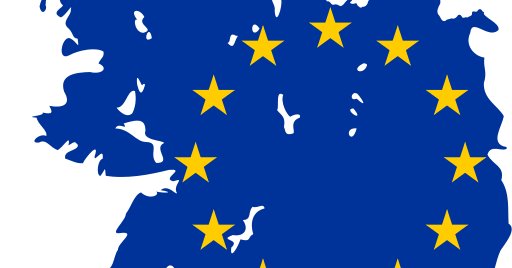This has certainly been true of the recent decline in Irish fortunes, with emigration higher than immigration and large numbers of other people thinking about leaving. However, many things are now different from other periods of economic trouble. Whole families, not just young people, are leaving Ireland behind in search of better opportunities. The lack of optimism about Ireland’s future is obvious to many.
In the midst of this situation, we have a European Union that has never been more friendly to Irish migrants. Knowledge and use of the English language is more widespread than ever before, and jobs that use it more plentiful: a clear advantage for Irish people who are largely anglophone. The EU’s freedom of movement provides an unchallenged right to work in any of the union’s countries, and the Irish have the skills to get the jobs as nearly 2/3 of emigrants possess a third level degree (licence). With cheap flights to and from Ireland, destinations with better climates, better welfare and work support systems, better healthcare and zero bureaucracy to enter, the rest of Europe has a lot to offer Irish citizens. For these reasons, one would expect the Irish to be flooding into Europe.
Yet we are not.
Or rather, not as one might expect. It is fair to say that of the 70-90 thousand people leaving Ireland every year since 2010, slightly less than half are leaving for EU countries. There are two anomalies as well: the United Kingdom and returning EU citizens. About half of Irish migration within the EU is to the UK. The reasons for this have little to do with European politics, Britain’s closeness in terms of geography and culture to Ireland are obvious, and Irish people have largely always been able to travel and work in Britain. Furthermore, the statistics are unclear about how many people leaving Ireland for the rest of the EU are citizens of those countries, leaving because of the economic problems in Ireland. So, in reality, the top destinations for Irish people have little to do with the progress of the EU, and most Irish people seek their opportunities outside of Europe.
Is this a failure of the European Dream? I believe that it is, at least partially. The other reasons have more to do with the circumstances in non-European countries than with anything that European citizens can control, but there is a causation there. One has to remember that the country that had the most faith in the European Union before the banks crashed was Ireland, if polls are to be believed. It is now fair to say that there is a definite crisis of faith in Ireland about the project, though the necessity of the Union continues to be recognised. This does not encourage a good image for the Irish man or woman looking for options where migration is concerned.
Europe is not seen as providing what Irish people want, namely an end to “austerity”. This is obvious from their choice of countries outside the EU. For instance, Canada and Australia currently have resource-economy booms, a need for workers and systems of support that remain strong. Austerity is not on their agendas, so they are safe investments of time and money for ordinary people. Most of Europe is not perceived with the same safety of opportunity, except perhaps for Germany. The fact that both Australia and Canada are English-speaking only adds to the allure. These two countries are in such need of workers that both have shown a preference for Irish workers, fast-tracking Irish people through their immigration bureaucracy with more ease. The European Union on the other hand is so associated with austerity in the minds of many of its citizens that is a doomed project unless that fact changes.
How should the union change? I think it is clear to everyone that the crisis was ultimately brought on by a lack of accountability at national levels, but also at an EU level. The eurosceptics say retreat into our respective national sovereignties, they say the union has gone too far and is entirely responsible. In truth, the union has not gone far enough: the Euro was created without an a political union to oversee the monetary union, the banks crashed and there was no political infrastructure to act. It doesn’t matter if there is a recovery, without a real European level government, competing national interests will cripple the eurozone and the EU as a whole. There can be no confidence in the system. Irish migration to other parts of the world is simply one symptom.
A government capable of effectively dealing with these economic realities, as well as the numerous foreign policy challenges that are going to arrive on our doorstep, requires democratic structures, genuine ownership of the European political process by the peoples of Europe. There is only one option that accomplishes this: reform of the European Union into a federation. Irish migration elsewhere will undoubtedly continue, but perhaps greater recognition of the opportunities available in Europe itself will then become possible.

Follow the comments: |
|
